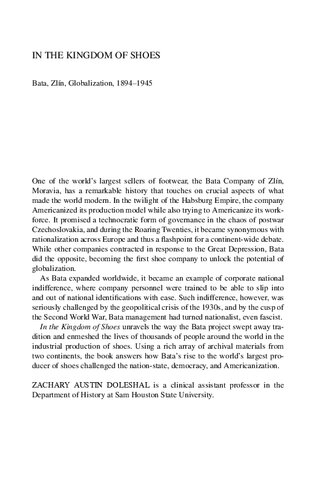

Most ebook files are in PDF format, so you can easily read them using various software such as Foxit Reader or directly on the Google Chrome browser.
Some ebook files are released by publishers in other formats such as .awz, .mobi, .epub, .fb2, etc. You may need to install specific software to read these formats on mobile/PC, such as Calibre.
Please read the tutorial at this link: https://ebookbell.com/faq
We offer FREE conversion to the popular formats you request; however, this may take some time. Therefore, right after payment, please email us, and we will try to provide the service as quickly as possible.
For some exceptional file formats or broken links (if any), please refrain from opening any disputes. Instead, email us first, and we will try to assist within a maximum of 6 hours.
EbookBell Team

0.0
0 reviewsOne of the world’s largest sellers of footwear, the Bata Company of Zlín, Moravia has a remarkable history that touches on crucial aspects of what made the world modern. In the twilight of the Habsburg Empire, the company Americanized its production model while also trying to Americanize its workforce. It promised a technocratic form of governance in the chaos of postwar Czechoslovakia, and during the Roaring Twenties, it became synonymous with rationalization across Europe and thus a flashpoint for a continent-wide debate. While other companies contracted in response to the Great Depression, Bata did the opposite, becoming the first shoe company to unlock the potential of globalization.
As Bata expanded worldwide, it became an example of corporate national indifference, where company personnel were trained to be able to slip into and out of national identifications with ease. Such indifference, however, was seriously challenged by the geopolitical crisis of the 1930s, and by the cusp of the Second World War, Bata management had turned nationalist, even fascist.
In the Kingdom of Shoes unravels the way the Bata project swept away tradition and enmeshed the lives of thousands of people around the world in the industrial production of shoes. Using a rich array of archival materials from two continents, the book answers how Bata’s rise to the world’s largest producer of shoes challenged the nation-state, democracy, and Americanization.